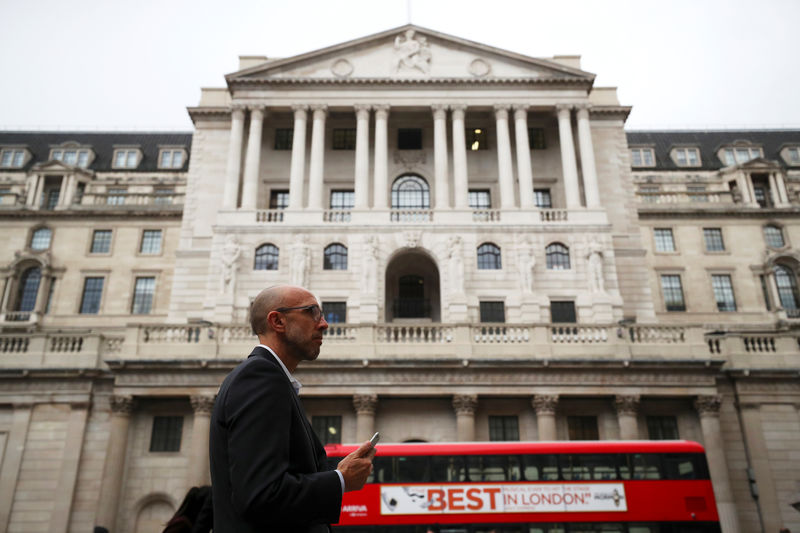Investing.com - As expected, the Bank of England decided on Thursday to increase interest rates for the first time in a decade.
Specifically, the BoE increased the benchmark interest rate from a record low of 0.25% to 0.50%.
This is the first increase since July 2007 when rates were increased to 5.75% and effectively reverses the last rate cut in the wake of the Brexit referendum when the Bank was concerned about uncertainty affecting the British economy.
The decision to hike interest rates was undertaken in a vote with seven members in favor and two opting to hold steady.
That surprised markets who were expecting six members to vote for a hike and three to prefer leaving rates unchanged.
The two dissenting members of the BoE’s Monetary Policy Committee were Jon Cunliffe and Dave Ramsden.
Furthermore, all MPC members agreed unanimously to leave its asset purchase program unchanged as expected at £435 billion ($575 billion) as well as to maintain the stock of sterling non-financial investment-grade corporate bond purchases, financed by the issuance of central bank reserves, at £10 billion ($13.2 billion).
The minutes from the meeting showed that the BoE now expects inflation to peak at 3.2% in October compared to its previous call for a top at 3.0%.
“On balance, inflation is expected to fall back over the next year and, conditioned on the gently rising path of Bank Rate implied by current market yields, to approach the 2% target by the end of the forecast period,” the minutes noted.
The MPC futher indicated that its outlook for inflation and activity in the November inflation report was “broadly similar” to the prior projections in August.
Gross domestic product was expected to grow “modestly over the next few years at a pace just above its reduced rate of potential”, although consumption growth would remain sluggish in the near term before rising.
“Business investment is being affected by uncertainties around Brexit, but it continues to grow at a moderate pace, supported by strong global demand, high rates of profitability, the low cost of capital and limited spare capacity,” the minutes highlighted.
“There remain considerable risks to the outlook, which include the response of households, businesses and financial markets to developments related to the process of EU withdrawal,” the MPC added.
Investors will undoubtedly look for further details on the future path of UK monetary policy at BoE governor Mark’s press conference on the inflation report at 8:30AM GMT (12:30GMT).
Following the announcement, the pound tumbled, extending earlier losses. GBP/USD traded at 1.3118 from around 1.3219 ahead of the publication, EUR/GBP was at 0.8889 from 0.8816 earlier, while GBP/JPY traded at 149.71 compared to 150.86 before the announcement.
Meanwhile, European stock markets showed mixed trade, with British equities extending earlier gains. London’s FTSE 100 gained 0.67%. The benchmark Euro Stoxx 50 lost 0.32%, France's CAC 40 slipped 0.13%, while Germany's DAX fell 0.18%.
